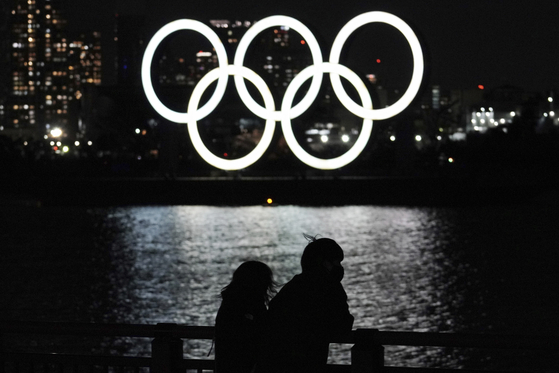In order to prevent the spread of the new coronavirus infection (Corona 19), the Japanese government is planning to extend the emergency issued in four areas in the metropolitan area, including Tokyo, for two weeks. This is to reduce the possibility of re-proliferation as much as possible ahead of the start of the Tokyo Olympic torch relay (March 25).
Scheduled to be released on the 7th, but seems to be extended until the 21st
Trying to minimize the spread of the torch relay on the 25th
“Olympic Games are likely to be held without foreign audiences”
![On the 3rd, citizens look at the Olympic sculpture in Odaiba, Tokyo. [AP=연합뉴스]](https://i0.wp.com/pds.joins.com/news/component/htmlphoto_mmdata/202103/04/711ed519-8c4f-44f8-aa28-dce161df983a.jpg?w=560&ssl=1)
On the 3rd, citizens look at the Olympic sculpture in Odaiba, Tokyo. [AP=연합뉴스]
According to Japanese media such as the Yomiuri Shimbun on the 4th, Japanese Prime Minister Yoshihide Suga told the House of Representatives Budget Committee the day before, “It is a very critical step to curb infectious diseases.” “He said. The current emergency in Tokyo, Kanagawa, Saitama, and Chiba prefectures was scheduled to be lifted on March 7. This is to be extended by two more weeks until March 21st.
Prime Minister Suga announced his intention to lift the emergency declaration on the 7th as scheduled earlier this week, and then made a sudden turn toward extension. The Nippon Geizai Shimbun (Nikkei) interpreted that the background of this change of position was to “appease public opinion” in preparation for the Tokyo Olympics and the House elections.
“If the emergency is lifted, 1,000 infected people per day in Tokyo in July”
If the emergency is canceled on the 21st, the Olympic torch relay will start on the 25th, four days later. Until then, the Japanese government’s judgment is that the number of infected people should be reduced as much as possible so that public opinion against the Olympics held in the midst of the Corona 19 epidemic can be subsided. In Tokyo, where 200 to 300 infected people are present per day, it is predicted that if the emergency is lifted on the 7th, the number of confirmed cases will increase to 1,000 by July 23, when the Olympics begin.
![Japanese Prime Minister Yoshihide Suga (right) and Tokyo Governor Koike Yuriko. [연합뉴스]](https://i0.wp.com/pds.joins.com/news/component/htmlphoto_mmdata/202103/04/efef9031-0512-4ec4-8c4f-649e2760f038.jpg?w=560&ssl=1)
Japanese Prime Minister Yoshihide Suga (right) and Tokyo Governor Koike Yuriko. [연합뉴스]
It is also interpreted that Prime Minister Suga, who has been criticized for “procrastination” in the suspension of the travel promotion campaign “Go To Travel” and the issuance of the second emergency declaration, hit a player this time. When Tokyo Governor Koike Yuriko and others made a move to urge the government to extend the emergency situation, they first spoke in order not to get caught up in the situation. A government official told the Mainichi newspaper, “It is completely’Koike breaking’. This is to prevent the government from appearing to have extended it at the request of (Governor Koike).”
Whether or not to hold the Tokyo Olympics is likely to be finalized by the International Olympic Committee (IOC) on March 10-12. Even if the Olympics are confirmed to be held, it is necessary to decide whether to accept overseas spectators in March.
“Difficulty accommodating large-scale foreign tourists”
The Yomiuri Shimbun quoted officials from the government and the Tokyo Olympic Committee on the 4th, saying that it is highly likely that the stadium will not accept foreign audiences.
![On the 3rd, Seiko Hashimoto, chairman of the Tokyo Olympics organizing committee (left), and Olympic Supervisor Marukawa Tamayo, held a video conference with IOC chairman Thomas Bach, IPC chairman Andrew Parsons (back screen), and Governor Yuriko Koike, Tokyo Governor, in March on acceptance of overseas audiences. Agree to come to a conclusion. [신화=연합뉴스]](https://i0.wp.com/pds.joins.com/news/component/htmlphoto_mmdata/202103/04/d0a6c51f-d9d2-48db-8e68-40955f7ac90a.jpg?w=560&ssl=1)
On the 3rd, Seiko Hashimoto, chairman of the Tokyo Olympics organizing committee (left), and Olympic Supervisor Marukawa Tamayo, held a video conference with IOC chairman Thomas Bach, IPC chairman Andrew Parsons (back screen), and Governor Yuriko Koike, Tokyo Governor, in March on acceptance of overseas audiences. Agree to come to a conclusion. [신화=연합뉴스]
It is because the burden of allowing large-scale foreign tourists to enter the country is because the spread of Corona 19 in each country does not stop and vaccination is slower than expected. According to the event officials, there are about 900,000 Olympic tickets sold overseas so far.
Since January this year, the Japanese government has completely suspended new entry as a countermeasure against Corona 19. Even after the issuance of the emergency is completely lifted, the country plans to continue the suspension of entry for the time being due to concerns about the influx of mutant viruses. It is highly likely that the entry of Olympic athletes and officials will be allowed in advance.
Tokyo = Correspondent Lee Young-hee [email protected]
![]()
